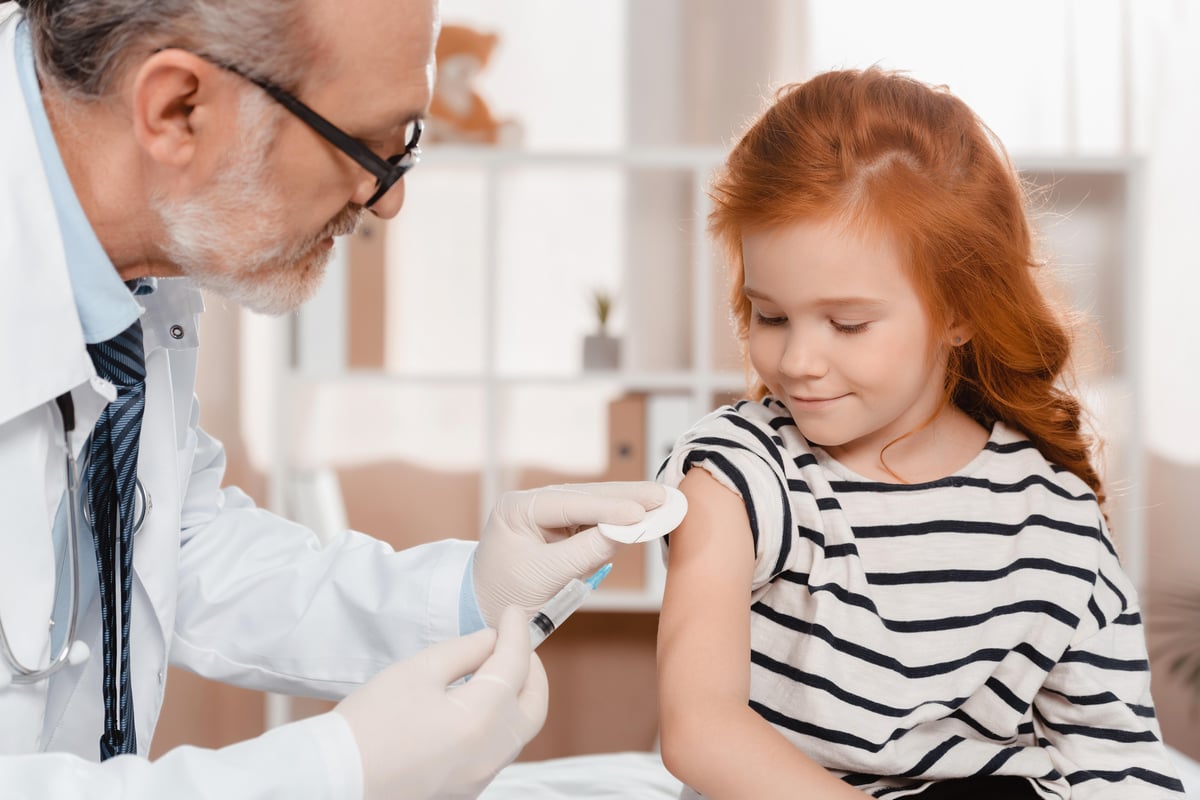FDA Authorizes Pfizer Booster Shot for Kids Ages 5 to 11

TUESDAY, May 17, 2022 (HealthDay News) -- A single booster dose of the Pfizer COVID-19 vaccine can be given to 5- to 11-year-olds, the U.S. Food and Drug Administration announced today.
The third shot can be given at least five months after healthy kids complete the two-dose vaccine series, the FDA said. Its action, which now goes to the U.S. Centers for Disease Control and Prevention for approval, dovetails with a rise in infections in many areas of the country.
"While it has largely been the case that COVID-19 tends to be less severe in children than adults, the Omicron wave has seen more kids getting sick with the disease and being hospitalized, and children may also experience longer-term effects, even following initially mild disease," said FDA commissioner Dr. Robert Califf. "The FDA is authorizing the use of a single booster dose of the Pfizer-BioNTech COVID-19 vaccine for children 5 through 11 years of age to provide continued protection against COVID-19."
Califf noted that vaccination is the most effective way to prevent COVID-19 and its consequences. And, he emphasized, it is safe.
The CDC must decide whether to formally recommend the booster for this age group. The CDC's scientific advisers are scheduled to meet on Thursday, according to the Associated Press.
FDA officials based their decision on an analysis of data from a group of children in an ongoing trial that led to last fall's authorization of the Pfizer vaccine primary series in 5- to 11-year-olds.
Antibody responses were evaluated in 67 study participants who received a booster dose seven to nine months after completing the two-dose vaccine regimen. A month after the booster, their antibody levels were higher than before, according to the FDA.
The safety of a single Pfizer booster dose was assessed in about 400 children, aged 5 to 11, who received it five to nine months after the two-dose series.
The most commonly reported side effects were pain, redness and swelling at the injection site, as well as fatigue, headache, muscle or joint pain, and chills and fever.
Dr. Diego Hijano, an infectious disease specialist at St. Jude Children's Research Hospital in Memphis, Tenn., welcomed the FDA authorization.
"With an uptick in infections and the potential for a surge in the fall, a booster shot for children ages 5 to 11 is an important layer of protection," Hijano said. "Vaccines save lives. Parents of eligible children, five months out from their last COVID vaccine shot, should make appointments for their child's booster so they have full protection for the summer from severe illness and hospitalization."
Meanwhile, Califf urged parents whose eligible children have not yet been vaccinated to get the shots.
"Getting them vaccinated can help protect them from the potentially severe consequences that can occur, such as hospitalization and death," he said in an FDA news release.
The CDC noted that more than 350 kids between the ages of 5 and 11 have died as a result of COVID-19, according to AP.
Today's action follows the FDA's authorization on Jan. 3 of a single booster dose of the Pfizer vaccine for 12- to 15-year-olds.
The FDA did not hold a meeting of its vaccine advisory committee before deciding on the Pfizer booster for 5- to 11-year-olds. It said there were no concerns that would benefit from additional discussion by committee members. Relevant documents about the decision are available on the FDA's website.
More information
There's more on COVID-19 vaccines at the American Academy of Pediatrics.
SOURCES: U.S. Food and Drug Administration, news release, May 17, 2022; Associated Press
Related Posts
Race-Specific Approach to Spirometry Disadvantages Black Patients
WEDNESDAY, July 26, 2023 (HealthDay News) -- A race-specific approach to...
Over 7 Million U.S. Seniors Have Mental Declines That Threaten Financial Skills
MONDAY, Sept. 19, 2022 (HealthDay News) -- As Americans age, millions end up...
Rhinoviruses, Enteroviruses Persisted During Pandemic Among Pediatric Patients
WEDNESDAY, Feb. 8, 2023 (HealthDay News) -- Rhinoviruses and/or enteroviruses...
Weight Loss Your Resolution? Experts Look at Fasting, Keto and Whole 30
THURSDAY, Dec. 30, 2021 (HealthDay News) -- Folks who are determined to shed...
